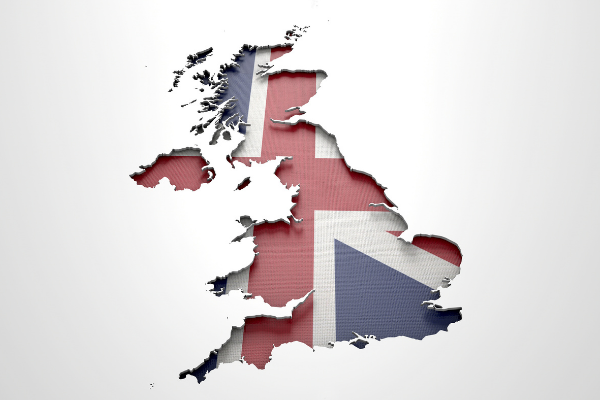BY:
SHARE:

New arrangements for sending parcels from Great Britain to Northern Ireland by parcel carriers from 1 May 2025.
We left the European Union at midnight on the last day of December 2020, and since then, there have been temporary arrangements in place for moving goods from Great Britain to Northern Ireland. HMRC adopted a temporary approach to applying declaration requirements for the movement of goods in parcels (including by the Royal Mail Group and parcel carriers).
At the time, HMRC recognised Northern Ireland's unique circumstances, the impacts of any disruption to parcel movements in the context of the COVID-19 pandemic, and specific challenges for parcel operators moving parcels. In the majority of cases, goods sent to consumers did not need a Customs declaration.
All this is about to change, and unless your parcel carrier has joined the UK Carrier Scheme, you may be in for an unpleasant surprise.
From 1 May 2025, the rules regarding the movement of parcels from Great Britain (England, Scotland, and Wales) to Northern Ireland will change. These changes will affect businesses, consumers (traders and private individuals), and their parcel carriers.
Here at Strong and Herd, we have attempted to summarise the changes in this brief article. To assist you in working your way through the changes, we have included the (many!) links to the guidance pages on gov.uk at the end of the article.
So please read the summary first and then decide which guidance applies to your circumstances, whether you are a private individual, a business, or a parcel carrier.
Summary of the Changes
Below we have set out what we believe to be the main changes under the Windsor Framework.
Business-to-Consumer Parcels
Consumer-to-business and consumer-to-consumer parcels can also be moved in this way. However, consumer-to-consumer parcels must be for personal use only.
These can continue to be moved without:
- Customs declarations
- Safety and security requirements
- Customs duty
- Presentation of goods to Customs authorities
BUT the goods being moved must meet all the following criteria:
- The parcel is sent by a UK-established business or individual
- An authorised carrier moves the parcel under the UK Carrier Scheme where required
- The parcel is sent to or from a consumer
- The parcel weighs no more than 31.5 kg (or 100 kg if it is business-to-consumer or consumer-to-business and contains a single item)
- The goods in the parcel are not subject to specific domestic or international law restrictions (also known as category 1 goods), such as the Russia sanctions regime or EU trade defence measures.
Click-and-Collect
Parcels where consumers place orders for goods to be delivered to a business address in Northern Ireland for collection, for example from a parcel locker in a shop, can be treated as business-to-consumer parcels, even when they are sent to a business address.
If the goods do not meet the above criteria, the parcels will need to be sent according to the Business-to-Business parcel movements.
Business-to-Business Parcels
Parcels that are sent from a business in Great Britain to a company in Northern Ireland have the same requirements as goods moved using freight. If they are eligible, parcels can be moved under the simplified processes for Internal Market Movements.
A full Customs declaration is required if none of the parties involved in the parcel movement are authorised under the UK Internal Market Scheme or the goods are not eligible to use the simplified processes for Internal Market Movements.
You should discuss with your carrier what their individual commercial arrangements for sending business-to-business parcels will be.
Businesses moving goods under the UK Internal Market Scheme need to keep evidence for 5 years. This includes evidence that the goods are for sale to or final use by end consumers located in the UK. The end consumer could be a business receiving the parcel or its customers.
Moving goods to Northern Ireland from outside the UK
Goods sent to Northern Ireland from outside the UK cannot be moved under the UK Carrier Scheme, even if they are moved to Northern Ireland through Great Britain.
The UK Carrier Scheme
The UK Carrier Scheme authorises parcel carriers to move eligible consumer parcels from Great Britain to Northern Ireland without completing Customs or safety and security declarations.
A parcel carrier, in this case, is an operator who moves parcels from Great Britain to Northern Ireland.
To be authorised, a parcel carrier must meet the following criteria:
- Be established in the UK, and if you’re not established in Northern Ireland, you must have an indirect Customs representative established in Northern Ireland
- Not have committed any serious or repeated infringements of legislative or regulatory requirements within 3 years before your application
- Have a high level of control of your operations, including a system to manage commercial and transport records
- Comply with the obligations on authorised carriers moving eligible consumer parcels
Guidance on gov.uk
How to move parcels from Great Britain to Northern Ireland for parcel carriers
Sending parcels from Great Britain to Northern Ireland between private individuals
Sending parcels between Great Britain and Northern Ireland under the Windsor Framework
Sending parcels to and from Northern Ireland
Check if you can apply for the UK Carrier Scheme
Internal Market Movements from Great Britain to Northern Ireland
Apply for authorisation for the UK Internal Market Scheme if you bring goods into Northern Ireland
Simplified Process for Internal Market Movements (SPIMM) - Category of Goods
Submitting the Internal Market Movement Information
The new arrangements, as set out in the Windsor Framework, are planned to take effect from 1 May 2025.
OneCall™ Email assistance as and when required; A one-call solution for all your import, export and customs enquiries. Export help. Import help. Customs help.
Stay informed about customs and international trade matters by subscribing to our OneCall™ service. This comprehensive offering includes a dedicated email helpline for support, timely practical updates direct to your inbox (Did You Know?), monthly UK Customs & Trade Briefings and access to an interactive members' area with an exclusive community for our subscribers.
International Trade Updates & Spotlight Newsletter
Subscribe to our free information emails covering international trade topics...









